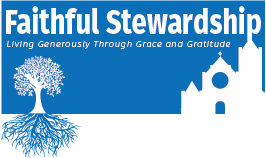(Continuing a series of reflections based on Bishop Robert Schnase's book, Five Practices of Fruitful Congregations.)
Intentional Faith Development refers to all the ministries that help us grow in faith outside of weekly worship, such as bible studies, Sunday School classes, support groups, and prayer teams. Congregations who practice Intentional Faith Development offer opportunities for people to learn in community for people at all stages of faith. They offer ministries that help people grow in grace and in the knowledge and love of God. Intentional refers to deliberate effort, purposeful action, and high priority.
Around the time I entered ordained ministry in the early 1970’s, a number of articles were published concerning the state of religious education in various Christian denominations. The articles reported on several studies and surveys that showed declining attendance. The post-World War II Baby Boomers had reached adulthood and were not as committed to Christian education for themselves and their children as their parents’ generation had been.
My second appointment after seminary was on the staff of a Bishop who wanted me to get out there and address this situation before it got any worse in his jurisdiction. “I want you to help our churches turn the Sunday school around,” he said. I can’t say we actually accomplished his “turn around” objective, but we did at least find some new energy and stop the slide.
One nationally recognized authority on Christian education sounded the warning: “As goes the Sunday School, so goes the Church.” He was right. Declining participation in Christian education, especially on Sunday mornings, preceded – some would say precipitated – declines in worship attendance, membership, and giving in mainline Churches.
During the same half-century, we witnessed a dramatic rise in participation in more theologically conservative “evangelical” congregations and a concurrent increase in their level of influence in American politics and culture. These Christian movements have offered absolute answers and simple rules that comfort a generation that wasn’t well-formed in faith and suddenly found themselves adrift in a world-wide cultural change. The more conservative theological and moral principles provided a sense of security and a place to drop anchor. This generation demanded options in every aspect of life. But when it came to faith, they wanted something that is changeless.
Many of our members joined them. The Episcopal Church has been baffled by the decline and uncertain about what to do. In our attempts to respond, we have not wanted to inconvenience one another and we’ve tried less demanding offerings for faith formation. But most of our attempts at accommodation have not been faithful to the Baptismal Covenant and have failed to form people in the Christian faith. Members have drifted away or sought to shore up their feelings of theological and biblical inadequacy in other faith communities.
Now, we see a generation emerging that isn’t so comfortable with a faith that possesses all the answers, is always right, knows the absolute truth, and tells them what to think. They want space for mystery and wonder. They are less interested in what is changeless than they are in seeking that which is ageless. There is a difference!
Our Church has the theological, liturgical, sacramental, and moral heritage to respond to this generation. We need to listen to their questions and provide an environment in which it is safe to ask them. This is a unique opportunity to leave our comfort zone and join them in their spiritual quest. They are calling us to awaken from our complacency and journey with them into a new era of wonder, love, and praise.
Therefore, let us take seriously the call to Intentional Faith Development for our Church, ourselves, our children, and those who come to us seeking a living relationship with “the author of peace and lover of concord, whom to know is eternal life and to serve is perfect freedom,” to paraphrase The Collect for Peace.
One of the things potential applicants for Rector will be curious about is the commitment of the parish to faith formation. Currently, St. Martin’s has a somewhat small number of options. However, we are beginning to explore ways to expand our offerings. On Saturday, The Rev’d Dr. Suzi Robertson will be here to train Godly Play leaders for our children’s Sunday School. We will soon have a Christian Formation Commission and its first task will be to help the parish envision the kind of opportunities that are needed to nourish the faithful. A team that was appointed last summer to assist in finding a youth minister is actively engaged in that process, which we hope will lead to the rebuilding of a dynamic, lay-led program of formation for our youth.
It’s a new beginning! I hope you and your household will be involved in intentional ways to strengthen faith formation for all ages at St. Martin’s.
I’ll see you in Church!
The Very Reverend Ron Pogue
Interim Rector
St. Martin-in-the-Fields Episcopal Church
Keller, Texas
